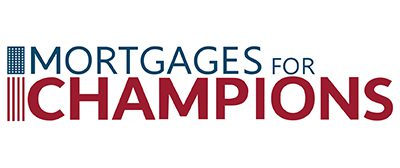First-time home buyers make up about a third of the home-buying market. So, if you’re buying your first home, you’re not alone.
However, you may not feel prepared. In fact, most first-time homebuyers feel like they aren’t.
Luckily, you’re here to learn the best home buying tips for new homeowners. With our home buying tips, you’ll understand the ins and outs of buying your first home. And, you’ll be able to reduce the stress and anxiety that so many first-time homebuyers have during the process.
Keep reading to get started. There’s so much to learn.
Preparing to Buy Your First Home
Getting ready for the home-buying process may seem like it’s a long way away, but – if you’re reading this article – you should’ve already started preparing. The financial and emotional struggles that come along with buying a home may overwhelm you at first. So, we recommend that you get ahead of the process.
There are plenty of ways to help you feel more prepared for buying your first home.
1. Start Saving Now
If you haven’t already, it’s time to start saving. If you have enough for a downpayment, you need to save more.
What a lot of first-time homebuyers don’t know is that there are more costs than the downpayment. You’re going to incur fees, expenses, and costs that you wouldn’t have anticipated before.
First off, your downpayment is likely going to be thousands of dollars. Even if you’re able to get a loan with a 3% downpayment, it adds up. So, you should use a downpayment calculator to make sure that you’re ready to save up the money that you need for your future home.
Next, you need to consider closing costs. This is going to be equivalent to about 2% to 5% of the total loan amount. While the closing costs depend on the lender that you have, you should err on the side of caution and save about 5% of the loan amount that you’re going to take out.
Lastly, you should consider moving expenses. Even if you’re moving across town, it’s likely that you’ll need to rent a vehicle to haul furniture. If you have the equipment already, you may need to consider hiring lifters to assist during the move.
Other than these financial factors, there are a few, smaller fees to take into consideration. Put aside an extra $1,000 just in case anything comes up at the last minute.
2. Calculate What You Can Afford
If you’re buying your first home, it’s likely that you don’t have an endless supply of money. While older individuals may be able to cater to their wants more, you have to cater to your needs.
You can’t go over budget when you’re buying a home.
In order to find your financial limit, you need to calculate your home affordability. Without this kind of calculator, you’re likely to invest too much in your home. Many first-time homebuyers do this because they don’t understand the financial calculations behind mortgages.
If you end up buying more house than you can afford, you may have trouble paying your mortgage payments in the future. As the regular expenses of home ownership add up, you could find yourself in trouble quickly.
When in doubt, shoot for a lower number than you think you can afford. It’s better to have some money left over.
3. Improve Your Credit Score
You should always know your credit score. It is one of the most important numbers during your adult life, and it holds a lot of financial power.
Your credit score will help lenders determine whether you’re worth an investment risk. A high credit score can help you get a lower interest rate for your mortgage as well as a lower downpayment requirement.
If you have a low or average credit score, you should work on pulling it up as quickly as possible. Here are a few tips that you can use to improve your credit score:
- Pay off all of your debt
- Avoid making big purchases within six months of applying for a mortgage
- Don’t apply for other lines of credit six months before applying for a mortgage
- Make all of your payments in full on time
- Increase your credit limit
- Decrease your revolving credit usage
The main thing that you need to worry about is the amount of debt that you have. Your debt-to-income ratio will tell the mortgage lenders whether you can handle another loan on top of your other financial commitments. If you have a high debt-to-income ratio, it’s unlikely that you’re going to get good mortgage terms.
Choosing the Right Mortgage
When it’s time to choose the right mortgage for your home, you need to understand all of the jargon that comes with the process. Many times, first-time homebuyers get bogged down by all of the considerations that they need to make.
With our tips, you’ll be prepared to negotiate and make the right choice.
1. Evaluate All of Your Options
Often, first-time home buyers get excited about one offer and accept it prematurely. It can feel great when you’re approved for the mortgage that you want.
However, if you’re going to get the best deal, you need to shop around before you make a decision. In other words, don’t accept the first offer that someone makes.
There are several kinds of loans for first-time homebuyers. Look at the different types and consider which type is the best for you.
From there, you can speak with different lenders about the rates and deals they can offer you.
2. Compare Rates and Fees
Once you’ve evaluated all of your options, you should choose the one that’s going to save you the most money while giving you the perks you want. The best way to collect all of these values is by requesting loan estimates from several different lenders.
Based on these estimates, you can decide which lenders are worth working with. If you’re not getting the rates you want, consider negotiating to see what kind of deal you can get.
You may also need to consider your risk profile as a borrower. If you’re considered a high-risk investment right now, you may want to wait to get a mortgage or consider refinancing in a few years.
3. Get a Preapproval Letter
Nothing that the lender says matters until you have a preapproval letter in your hand. This letter solidifies the terms of the agreement that you and the chosen lender made.
The interest rate and other terms detailed in the letter will remain the same no matter what happens to the market. However, most of these letters have expiration dates on them. So, you should be careful to purchase your home in that amount of time.
Shopping for a Home
Now, it’s time to go on looking for and purchasing a home. Arguably, this is the most exciting part of the process.
However, because of all of the excitement, you may find yourself wrapped up in things that you can’t afford. This is especially true when it comes to first-time homebuyers who may not be able to afford their dream home yet.
1. Stick to Your Budget
One of the biggest mistakes that first-time homebuyers make is not sticking to their budget. They may fall in love with an expensive house or convince themselves that they can afford more than they originally thought.
This leads to overspending and – sometimes – bankruptcy. You don’t want to go into more debt than you’re already going to have with your mortgage.
Consider the amount that you’ve saved for a downpayment and the depth of the loan that the lender offered. Do not go above these amounts. Otherwise, you’re going to find yourself in some financial trouble.
2. Choose the Right Real Estate Agent
Your real estate agent is going to be your best friend during this process. That’s why you need to make sure that you’re picking the right person for the job.
This individual needs to understand the things that you need in the budget that you need them. With this information, they can guide you through the home-buying process and help you find the right home for you.
3. Negotiate With the Seller
Negotiation is difficult for first-time homebuyers. Sometimes, real estate agents can help with this. But, the biggest factor in making an offer is the home inspection.
The selling price of a home does not have to equal the buying price. It’s all a negotiation.
Many first-time homebuyers think that buying a home is like online shopping. However, prices can fluctuate and include terms and conditions when it comes to buying a home.
Apply for a Mortgage Today!
If you’re feeling ready to jump in as a first-time homebuyer, you need to apply for a mortgage. Right now, there are great deals for first-time homebuyers and other individuals who are looking for homes.
Don’t forget to review your credit and consider your current financial situation. You may need to take some time to get your affairs in order before applying.
Don’t feel rushed. You can always come back when you’ve gathered everything you need.
RELATED ARTICLES – Mortgages for Champions Special Mortgage Programs: What You Need to Know Purchasing a Home? Here’s What You Need to Consider Mortgages for Champions Special Mortgage Programs: What You Need to Know The Best Mortgages for Military Personnel in 2021 Home Loans for Nurses: A Complete Guide to Buying and Refinancing How does VA loan Work For Veterans
















